Polari Prize winner Joelle Taylor on facism, butch lesbians and squatting
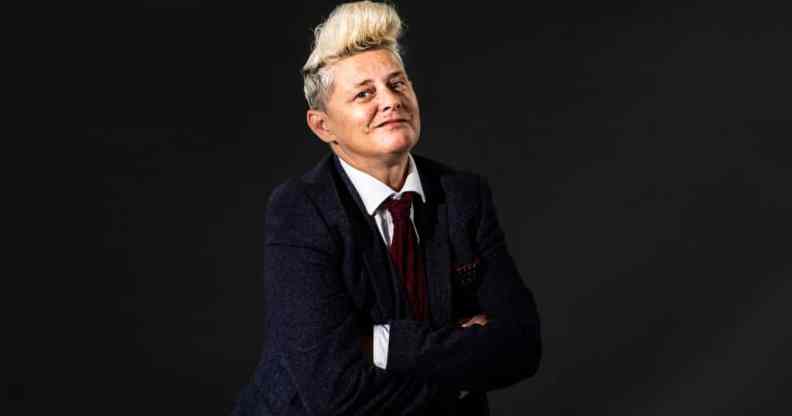
Poet, playwright and author Joelle Taylor attends a photo call during Edinburgh International Book Festival 2019. (Simone Padovani/Awakening/Getty)
Poet, playwright and author Joelle Taylor attends a photo call during Edinburgh International Book Festival 2019. (Simone Padovani/Awakening/Getty)
Polari Prize winner Joelle Taylor wants queer people to stop fighting with each other online and turn their attention to the far-right.
Author and poet Joelle Taylor was named the winner of the LGBTQ+ book prize on Tuesday (15 November) for C+nto and Othered Poems, a collection celebrating butch lesbian counterculture, set in the dyke bars of the ’90s.
It was in those venues Taylor and her ilk came of age, and where radical ideas were hatched.
“Because of my sexuality I was exiled from my schoolmates, I was exiled from local community, neighbours, from my own family, and eventually my own body because everything affects everything else,” Taylor tells PinkNews. “Then when I came to London it was a door that separated me from all of that history, that sense of exile. When I opened it I had belonging.”
They were already seen as outcasts, so butch lesbians could be radical in their politics. That’s why they felt emboldened to break into abandoned buildings and squat in them.
“We were all about squatting and all about making art in strange places and not getting paid, just doing it because we could, because we could squat and because we could get the dole,” Taylor says.
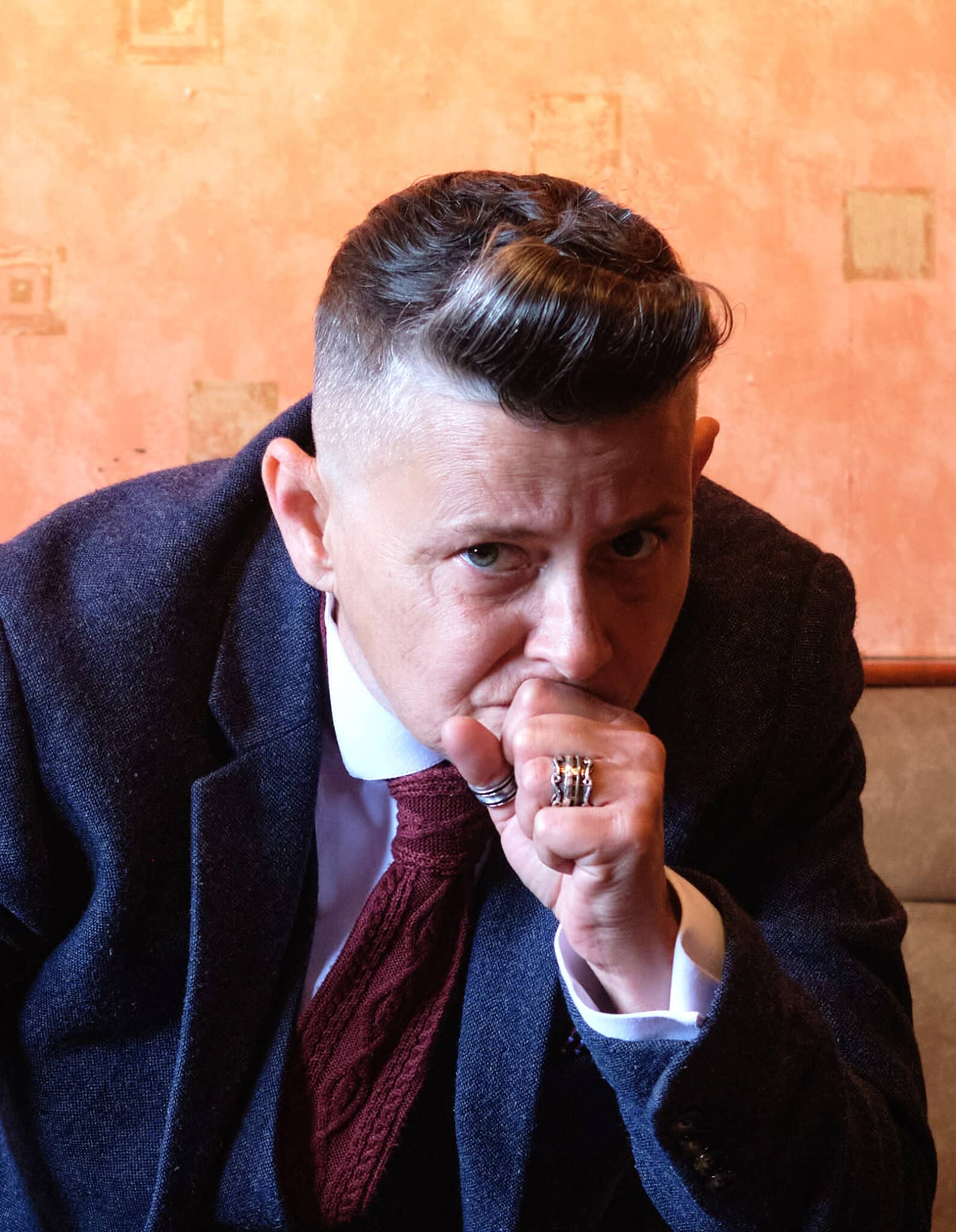
Joelle Taylor posing in a suit. (Roman Manfredi)
Right now, Taylor thinks squatting could be a response to the housing and cost of living crises, and suggests we ought to “re-look” at it.
“All the left wing movements, including LGBT+ movement, need to join together, because the bills coming through are just unbelievably high – my rent is just ridiculous. It’s the same for everybody.”
She’s also interested in legal routes of responding to the housing crisis, such as housing associations, but she struggles to see how such initiatives can work under capitalism. After all, she says, “Who will give us money for our belligerent old lesbians?”
Taylor celebrates the butch lesbian scene while also drawing attention to the specific forms of misogynistic violence they face in her critically-acclaimed C+nto and Othered Poems. The collection was named winner of the Polari Prize 2022.
“A woman who doesn’t behave properly as a woman but who says she’s a woman is very, very challenging to patriarchy,” Taylor says, explaining why butch lesbians have so often found themselves on the receiving end of violence.
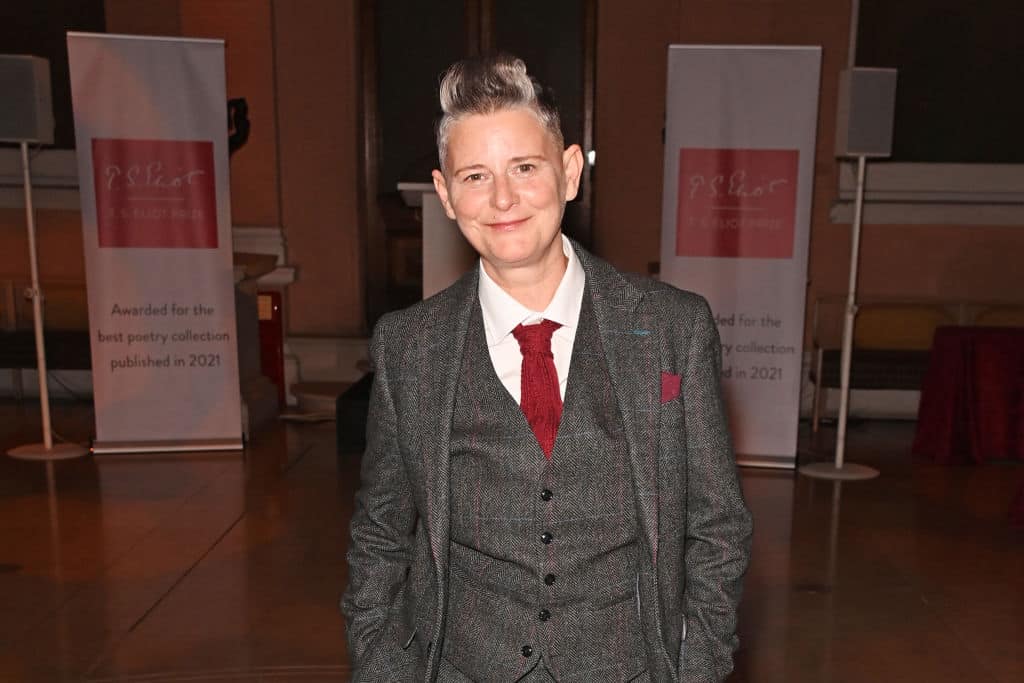
Joelle Taylor attends the TS Elliot Prize winners announcement at The Wallace Collection on 10 January, 2022. (Dave Benett/Getty)
Now in her fifties, Joelle Taylor has watched as queer culture has moved from physical spaces to online spaces – and she’s not sure the transition is working out all that well.
That’s because the internet “celebrates difference”, Taylor says, whereas physical spaces are all about commonality.
“I think we’ve lost, as a community, the compassion to understand that people with wildly varying views can be in the same space because there is a common enemy – and he’s coming.
“That common enemy is the far-right. We can see it happening all over Europe. Queer people should be coming together and fighting the same causes – not splintering.”
Taylor wonders sometimes if people are being set against each other intentionally, so fractured is the online community.
“You look at the bots, you look at the digital kettling that’s done and I think it’s been a very effective way of disarming a really powerful movement.
“It’s very frustrating, they’ve managed to atomise every important movement. Every civil rights movement is arguing with itself about definitions, about whether you’re left wing enough. It’s an act of pure genius – we’ve been atomised so we can’t fight.”
It’s also true, Taylor says, everyone is just so worn out that they don’t have the energy to fight any more – she thinks that’s absolutely intentional. “We’re all so bloody tired,” she laments.
While this is going on, human rights are in crisis across Europe.
“Queers are being [killed] in front of us in Chechnya. Gay men are being raped and deported in Qatar, where the World Cup is. We know that most of Poland now is an LGBT free zone. We know that fascism has never been very gay friendly and it’s coming – it’s coming,” Taylor says.
Arguably, it’s already here – Taylor recalls a march that happened in London after the Brexit vote, which saw people marching through the streets chanting homophobic and racist slurs.
And it’s not just about homophobia – it’s about racism and misogyny too. Taylor says the far-right are out for queer people, people of colour, and for women – and that’s why marginalised groups need to band together.
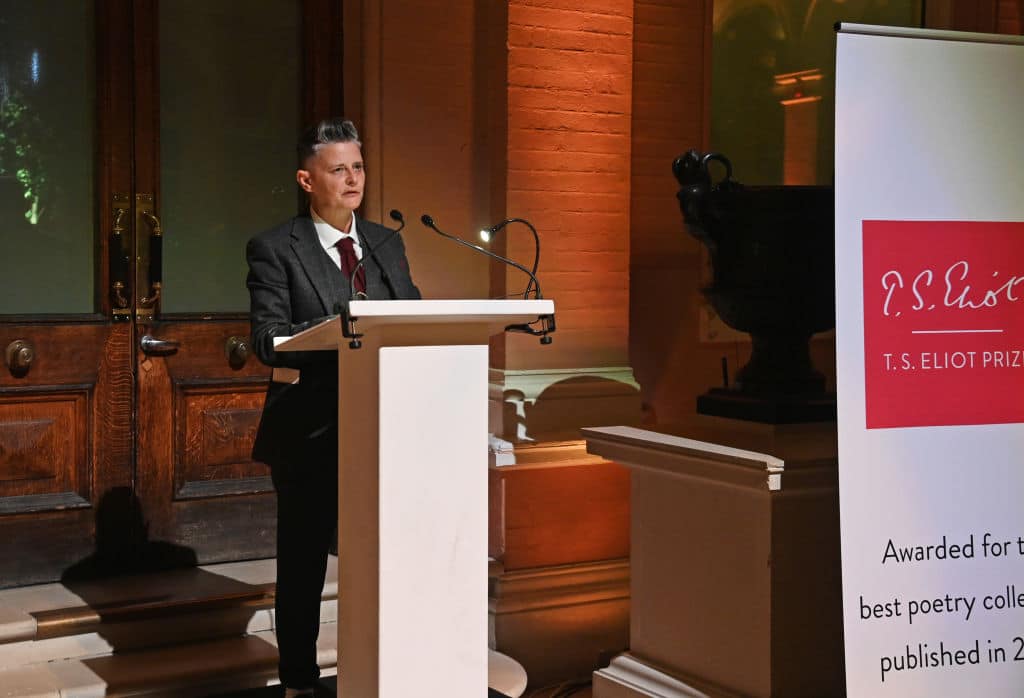
Joelle Taylor, winner of the 2021 TS Elliot Prize, speaks at the T.S. Elliot Prize winners announcement at The Wallace Collection on 10 January, 2022. (Dave Benett/Getty)
At a ceremony on Tuesday night (15 November), Taylor was named winner of the 2022 Polari Prize, an award that celebrates LGBTQ+ writing. That win, just months after she won the TS Eliot Prize, is an extraordinary achievement.
Taylor says that queer representation in the media is improving – she just wishes progress for butch lesbians and for trans people was being felt across the board.
“I’ve been talking to people involved in media of different kinds, including television, and we racked our brains trying to think of a time when there’s just been a program about butch dykes working for the working class parts of our community,” she says.
Representation isn’t everything, but Taylor believes it will ultimately make life better for butch lesbians and trans women if they’re depicted in kinder, more humane ways on screen – and if their stories are given the treatment they deserve.
She’s also keenly aware that, at the end of the day, having more queer people on television won’t stop fascism from gaining momentum. Taylor accepts it’s a scary time to be queer, but says it would be less frightening if people would come together and not allow themselves to be driven apart.
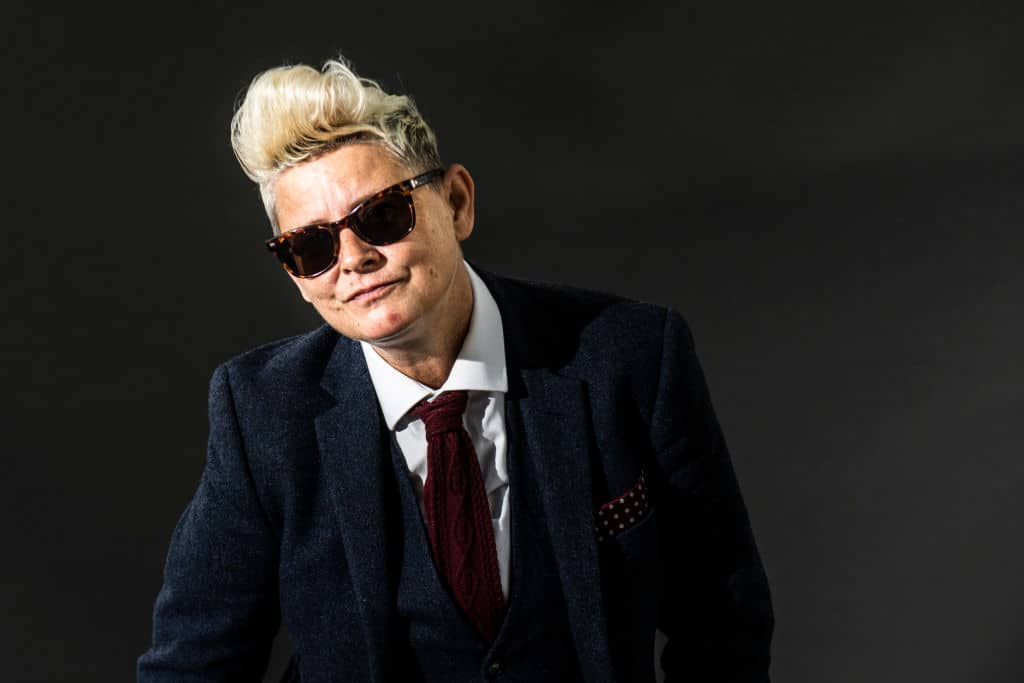
Joelle Taylor attends a photo call during Edinburgh International Book Festival 2019. (Simone Padovani/Awakening/Getty)
Taylor’s message to any younger queer people who are struggling in the current climate is simple – “we are together”.
“Everything you do from now on is to enhance the idea that we are together and unified,” she says.
“We are in a big dark room, a basement of a club, we can’t see each other, we don’t know what the other believes. All you know is that when you reach out your hand, someone is going to take it. Work to that.”
Joelle Taylor’s C+nto and Othered Poems is the winner of the 2022 Polari Prize.

